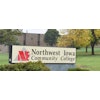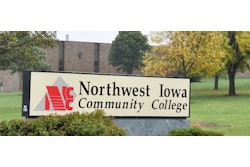The rapidly advancing technological era has undoubtedly changed the demands of the higher education system, especially as it pertains to grooming students for the workforce. Although this responsibility of modernizing the educational system is not pinned solely on administration, it lies heavily in the hands of educators as several research efforts have evaluated the need for teacher preparation in the digital era.
According to Ronald Thorpe, president and CEO of the National Board for Professional Teaching Standards, the glitch in teacher preparation is not in teachers’ resistance to change, but rather in their lack of experience with digital learning standards. Thorpe remarked, “With teaching especially, it’s very hard to teach in ways that you haven’t yet learned yourself.”
Thorpe further explained that the profession of teaching is “inextricably bound with [digital] learning, as they complement each other.” This relationship poses teaching barriers, particularly because a professor’s classroom experience tends to echo his or her own academic training, which is ultimately, he says, a stale, outdated practice that doesn’t necessarily match the modern demands of jobs. As jobs begin to welcome more multimedia presentations and increase their use of digital communication mediums, the requirements for prospective candidates are more technologically centered. Thus, the need for equipping students with digital skills has grown accordingly.
“If we immerse undergraduates, pre-serviced candidates in a world where they are looking at multiple examples of what accomplished teachers look like and how they think, then we can start to change the process that we employ with our students today,” Thorpe said.
Reportedly, the future of “accomplished teachers” will endure more rigorous exigency upon their induction into the field. In addition, the National Board for Professional Teaching Standards will expose future teachers to a virtual classroom, one that utilizes such technologies as online, formative assessments; digital textbooks; online courses; and adaptive software for student evaluation. These technologies are expected to impose critical and analytical thinking, a resource that has received enormous attention in the requests of educational enhancement today.
In order to ensure teacher precision, board administrators implemented a preparatory program referred to as an education teacher performance assessment or edTPA. The assessment program incorporates exams that measure a prospective teacher’s ability to lead classrooms in varying settings, including urban, suburban and rural environments.
Other recommendations have revolved around the idea of longer teacher residency programs in order to distribute leadership for new pathways. Lynne Schrum, dean of the college of human resources and education at West Virginia University, said, “Overwhelmingly, we need strong leaders in the schools. … In teachers, we need risk taking; we need teachers to try new ways of thinking and learning, and some of that requires residency programs.”














